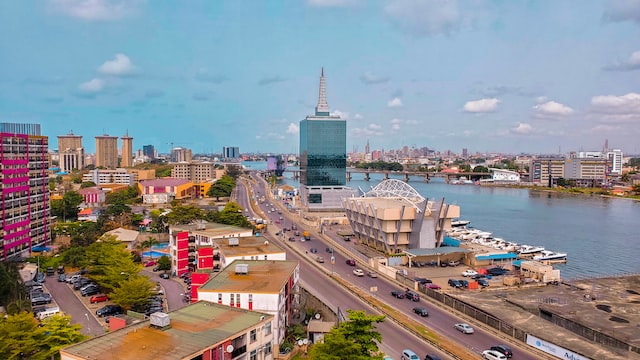Procedures of economic participation in Nigeria by Chinese Nationals
“Procedures of economic participation in Nigeria by Chinese Nationals”, Doing business in Nigeria: Pocket Guide for Foreigners, 2023, Issue 1. The Doing business in Nigeria: Pocket Guide for Foreigners is an e-newsletter run by the Law Firm of CJP OGUGBARA & Co. (SUI GENERIS AVOCATS) and Beijing Yu Du Consulting.
Abstract
Nigeria is a heterogenous society with a growing population of over 200 million and modified liberal legal frameworks that now allow foreign participations in the local businesses. The Bilateral trade volume between Nigeria and China has reached over $12.03 billion, this significantly places Nigeria as the number one trading partner to China in Africa. What factors that underpin the various procedures that allow Chinese the opportunity to participate in trade or business is what this exercise undertakes.
Introduction
Apart from what the Company and Allied Matters Act considers participation under exempted companies, there are two major ways in which foreign investors can participate in economic activities in Nigeria. They are the foreign direct investment (FDI) and the Portfolio Investment (PI). For clarity, a company is considered exempted if it is invited to Nigeria by or with the approval of the Federal Government to execute a specific project, or if it is a foreign company that has been in Nigeria and was nominated to execute a specific loan project on behalf of the donor organization or agency or if it is a foreign company with sovereign entity flavor and established solely for export promotion activities in the host country or an engineering/technical expert organization engaged by any of the Nigerian sovereign agencies with the approval of the Federal Government. See section 80(1) of the New Companies and Allied Matters Act, 2020.
Foreign Direct Investment
With regards to the foreign direct investment, a Chinese National can engage in business activities in Nigeria which is controlled, managed and owned by him. The conditions and or capacities such foreigner must possess are; first, that he or she is not less than 18 years. Second, that such investor is of sound mind and has no record of undischarged bankruptcy. Finally, such foreigner must also have not been found to be dishonest in his dealings. With these qualities, any foreigner can comfortably engage in the business of his choice. However, this excludes of course the categories of businesses considered to be of the Negative List. The foreigner can engage in these businesses directly by himself either through a Joint Venture Agreements or other similar investments contract with some local Nigerians or through an Artificial entity which is incorporated by the Corporate Affairs Commission under the Companies Allied Matters Act. One distinguishing factor in the Foreign Direct Investment in Nigeria and which the new Act has entrenched is the fact that the investor is given the opportunity from inception or registration to determine Persons with Significant Control in the company. Thus, ownership and control remain a key aspect of this business participation. It is also important to note that apart from incorporating the company, the following steps are paramount for the investors to take under the Foreign Direct Investments:
- Application for registration with the Nigerian Investments Promotion Council (NIPC);
- Application to the Securities and Exchange Commission for the registration of securities. See Section 8(k) of the Investment and Securities Act, 1999;
- Application for other permits including application to the Nigerian Embassy or Consular Office in the country of the investor for the grant of a business visa, subject to the regularization; and
- Importation of capital through an authorized dealer.
The Portfolio Investment
The second is the Portfolio Investment. This connotes an investment of equity interests in the registered company in a host country by through purchase of shares, advancement of loan for debentures interests. This equity investment particularly through share acquisitions can be done with foreign currency imported through an authorized dealer and converted to Naira at the official exchange rate. See Sections 12, 13 and 15 of Foreign Exchange (Monetary and Miscellaneous) Act No. 17 of 1995. It is incumbent that the authorized dealer through whom the foreign exchange or capital was imported must take steps to issue a Certificate of Capital Importation within 24 hours. Prior to importations of capitals, the foreign investor is expected to first of all apply for the purchase of shares in the very Nigerian enterprise of interest which could be a public or private but mostly public quoted companies. The application is not automatic as it will require the directors or the Board of the company to first pass a Resolution allotting the shares to the alien or requesting for the loans from the foreigner subject to the approvals of Security and Exchange Commission. After the Resolutions are passed, the investor will apply to register the investment as a Portfolio with the SEC and in the case of debenture, register the Charge with the relevant authority within the time stipulated by law.
Permits and Licenses
The first thing a foreign investor needs to do is to apply for a Business Permit. Section 8(1)(b) of the Immigration Act provides that no person other than a Nigerian citizen shall, on his own account or in partnership with any other person, practice a profession or establish or take over any trade or business whatsoever or register or take over any company with limited liability for any purpose without the written consent of the Minister of Internal Affairs. It is this consent by the Minister that is called Business Permit and it is simply the license that allows the foreigner to carry on the business activities he prospects for in Nigeria.
Since the company is to be owned, managed and controlled by a foreigner, the company so registered by the foreigner, having become a Nigerian entity would apply for Expatriate Quota from the Immigration Agency. Under Section 8(1)(a) of the same said Immigration Act, “no person other than a citizen of Nigeria shall accept employment, not being employment with the Federal or a State Government, without the approval of the Chief Federal Immigration Officer. This is otherwise called work permit. It is usually applied for by the company on behalf of its foreign officials invited to join the employment of the company. The application and the approval respectively are required to state specifically the designated jobs, the quota and the duration. The following are the two types of the expatriate quotas: the Permanent Until Reviewed (PUR), and Temporary Quota (TQ). The Temporary Quota has two subtypes to wit: Permanent Until Reviewed and Temporary Quota. While the latter is issued to the employees of the company and usually for 5 years subject to renewal for another term of 2 years, the Permanent Until Reviewed is issued permanently to mostly the Managing Directors or Alta-Ego of the company. The above is not the same with Resident Permit. Recall that the foreigner may have entered Nigeria with a Tourist or Business Visas which are naturally short visit visas that does not last beyond a period of three months. Unlike the Expatriate Quota where the company applies, the applicant for residence permit is the employee.
Due to the Federated Nigerian Legal System, the company is required to register the business premises where the company is to be situate. For instance, any business located in Ogun State of Nigeria is required under Section 5 of the Business Premises Registration Law, Laws of Ogun State, 2006 to apply to the Permanent Secretary, Ministry of Industry, Trade & Investment Oke-Mosan, Abeokuta, Ogun State for Business Premises Registration.
Conclusion
Conclusively, it need be pointed out that apart from any application or permit that would be made to the State or Local authorities where the company is located as well as other sector regulatory licenses, which the investor would need to commence businesses, the ease of doing business policy of the Nigerian Government has made provisions for One Stop Investment Centre. This is an initiative that houses 27 Government agencies, and provides investment facilitation services, reduce time required to process regulatory approvals and permits and assist with information and requirements from incorporation to expansion. Although the one-stop-shop is convenient for commencing a business, however, the sustenance and sustainability of such business through regulatory compliances and interfaces is a completely different ball game. Hence it is advised that the intending investor contracts a reputable Law Firm for professional advice.
The Law Firm of CJP OGUGBARA & Co. (SUI GENERIS AVOCATS) was established in December, 2014 as a Partnership Law Firm. The Firm has its Head Office at No. 16B, Lalubu Road, Oke-Ilewo, Abeokuta, Ogun State bordering Lagos State to the South. The Law firm is technology driven with global presence. The essence is to ensure adequate presence in consolidating the interests, instructions and briefs of its well cherished clients.
Since incorporation, the firm has successfully built internationally recognized reputation in Dispute Management through Litigation and Arbitration. It has also earned accolades in Commercial Law Practice that covers Real Estate Investment and Securitization. The Firm has also distinguished itself as a topnotch Tax Advisory and Energy Consultancy law Firm. Apart from these core practice areas, the Firm has exhibited significant experience in business developments. The firm boasts of proficiently trained staff with enormous skills to advise and structure all categories of deals on behalf of clients in the areas of secured credit transactions, collective investment schemes (either as managers or investors), investment pools, syndicated investments, project financing, debt recovery, pension and insurance claims, electricity investment, small and medium scale enterprises start-up advisories and a host of others.
One of the distinguishing factors about the firm is its flexibility and propensity to deplore technologically oriented tools in solving complex legal and sociolegal problems associated with doing business in Nigeria. Another factor is the well treasured versed experience in cross-border transactions, which is readily deployed across African countries under the African Continental Free Trade Areas Treaty to satisfy the needs of its clients.

Photo by Nupo Deyon Daniel on Unsplash

